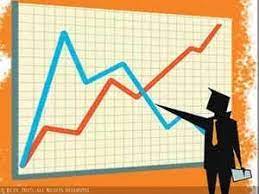Rajkotupdates.news : indian ceos expect economic growth

India rajkotupdates.news : indian ceos expect economic growth has been a hub of economic growth and development for the past few decades. With its vast population, diverse culture, and rich history, India has become one of the fastest-growing economies in the world. This success can be attributed to the vision and leadership of some of India’s top CEOs who have transformed businesses with their innovative thinking and strategic planning. In this blog post, we will dive into insights from India’s top CEOs on the future of economic development in India, explore how economic development is changing in the country, discuss what drives it forward and examine emerging trends that are shaping Indian businesses today. So let’s get started!
India’s Top CEOs on the Future of Economic Development
India’s top CEOs have a unique perspective on the future of economic development in India. They believe that as technology continues to evolve, businesses must adapt and embrace digital transformation to remain competitive.
Moreover, they see immense potential in emerging sectors such as healthcare, renewable energy, and e-commerce. These industries are poised for growth due to increasing demand from consumers and favorable government policies.
Top CEOs also recognize the importance of investing in human capital by providing training programs and upskilling initiatives for employees. This will enable them to stay relevant in an ever-changing business landscape.
Furthermore, India’s top CEOs understand that sustainability is key to long-term economic growth. By incorporating sustainable practices into their operations, businesses can not only reduce their carbon footprint but also improve profitability through cost savings.
In summary, India’s top CEOs envision a future where businesses leverage technology and innovation while prioritizing sustainability and human capital development. This approach will drive economic development forward while creating a better world for all stakeholders involved.
How Economic Development is Changing in India
India’s economic development has undergone a significant transformation in the past few years. One of the most notable changes is India’s shift from being an agrarian-based economy to becoming more service-oriented. This transition has been driven by technology and innovation, which has created new sectors such as e-commerce, fintech, and digital marketing.
Another major change that India is experiencing in terms of economic growth is the rise of entrepreneurship. The country is now home to one of the largest startup ecosystems globally with over 50 unicorns (startups valued at more than $1 billion). A supportive government policy framework coupled with increased access to capital through venture capitalists have contributed significantly to this trend.
Moreover, there is also a growing emphasis on sustainability among Indian businesses. Companies are beginning to recognize the importance of environmental and social responsibility and are incorporating sustainable practices into their operations.
Digitization is playing a transformative role in shaping India’s economic landscape. With increasing internet penetration rates across both rural and urban areas, businesses can reach customers like never before while also streamlining operations for greater efficiency.
These trends indicate that India’s economy will continue evolving rapidly towards greater innovation-driven growth in various industries while recognizing its social responsibilities towards society and environment alike.
What are the Drivers of Economic Development in India?
India is one of the fastest-growing economies in the world and has been constantly evolving over the years. There are several factors that have contributed to India’s economic growth.
Firstly, India’s large population offers a huge market for goods and services, creating an ample opportunity for businesses to grow. The booming middle class with increasing purchasing power fuels consumption-led growth, providing opportunities for both domestic and foreign companies.
Secondly, infrastructure development such as roads, railways, airports and ports plays a significant role in driving economic growth. These developments help connect people from all parts of the country while making it easier for businesses to transport goods across the nation.
Thirdly, technological advancements have played a crucial role in boosting economic development in India. With rising internet penetration rates coupled with government initiatives like Digital India program which aims at transforming India into a digitally empowered society; technology has created new avenues of growth by facilitating e-commerce ventures and start-ups.
Lastly but not least important is government policies aimed at attracting foreign investments by easing regulatory frameworks around setting up business in India along with incentives provided through Make In India initiative leading to better job creation opportunities while supporting indigenous manufacturing capabilities.
In conclusion or summarizing , these drivers have helped create an environment conducive to sustained growth paving way forward towards making “Atmanirbhar Bharat” (self-reliant india) leading towards achieving sustainable long-term progress.
Trends in Indian Businesses
Trends in Indian Businesses
The Indian business landscape is rapidly evolving, and several trends have emerged over the years. One of the most significant trends has been the shift towards digitalization. With increased internet penetration and access to technology, businesses are leveraging digital platforms to reach customers, streamline operations and improve efficiency.
Another trend that’s gaining momentum is sustainability. More companies are adopting environmentally friendly policies and practices as consumers become more conscious about their impact on the environment.
Moreover, there has been a rise in entrepreneurship with many startups emerging across various sectors. These young entrepreneurs are disrupting traditional industries with innovative ideas, products and services.
Additionally, diversity and inclusion have become essential aspects of modern-day businesses in India. Companies are actively promoting gender diversity, hiring individuals from diverse backgrounds while fostering an inclusive work culture.
Agile methods of project management have gained prominence as they enable companies to adapt quickly to changing market demands while keeping pace with technological advancements.
These trends suggest that Indian businesses will continue to evolve at a rapid pace driven by innovation, sustainability and inclusivity while leveraging new technologies for growth opportunities.
Conclusion
India’s top CEOs have provided valuable insights into the future of economic development in the country. From embracing technology to prioritizing sustainability and focusing on innovation, there are many factors driving economic growth in India.
As we move forward, it will be important for businesses and policymakers alike to continue exploring opportunities for sustainable and inclusive economic development. By investing in education and skills training programs, supporting entrepreneurs and small businesses, and promoting a culture of innovation, we can ensure that India remains at the forefront of global economic growth.
There is much optimism about the future of India’s economy. With strong leadership from top CEOs and continued investment in key sectors like healthcare, education, infrastructure, technology, and manufacturing – India is well-positioned to emerge as a major rajkotupdates.news : indian ceos expect economic growth player on the world stage. As individuals living within this country or those looking to invest within it would certainly do well to pay close attention to these trends in order not only follow but participate actively with its developments over time.




